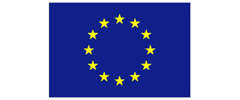List of Persistent Organic Pollutants (POPs) increased.
Four new chemicals, among them the flame retardant penta-BDE, have been added to the POP list.
10.05.2005 |Sascha Gabizon
Parties to Pops treaty keep up the pressure
Environment Daily 1874, 09/05/05Four chemicals will be considered for addition to an international blacklist, parties to the UN Stockholm convention on persistent organic pollutants (Pops) agreed last week at their first meeting since the treaty's entry into force (ED 29/04/05).
Delegations decided that flame retardants penta-BDE and hexabromobiphenyl, plus insecticide hexachlorocyclohexane and pesticide chlordecone, should be considered for possible inclusion on the convention's list of most toxic substances. All four were also proposed last year by the European Commission (ED 16/08/04).
The four chemicals will be evaluated by a new Pops review committee, also agreed last week. The committee will be based in Geneva and hold its first meeting after the summer. It will send recommendations for decision at future meetings of parties to the convention.
UN best available technology guidelines to prevent the release of Pops were not adopted at the meeting. Participants said more work had to be done to make them easier to understand and fully address developing country concerns. An experts' group will present revised guidelines to the next meeting of the parties.
A limited exemption from world-wide phase-out for pesticide DDT was examined for the first time in three years. The exemption was maintained, according to acting executive secretary to the convention John Buccini, because DDT was held to be still essential to fight malaria in developing countries.
Follow-up:
UNEP Chemicals, tel: +41 22 917 8193, plus Stockholm convention website. See also daily meeting coverage from the International institute for sustainable development, plus press releases from the UN, the UNEP, the Swiss government, Ipen, the UK environment ministry.

































